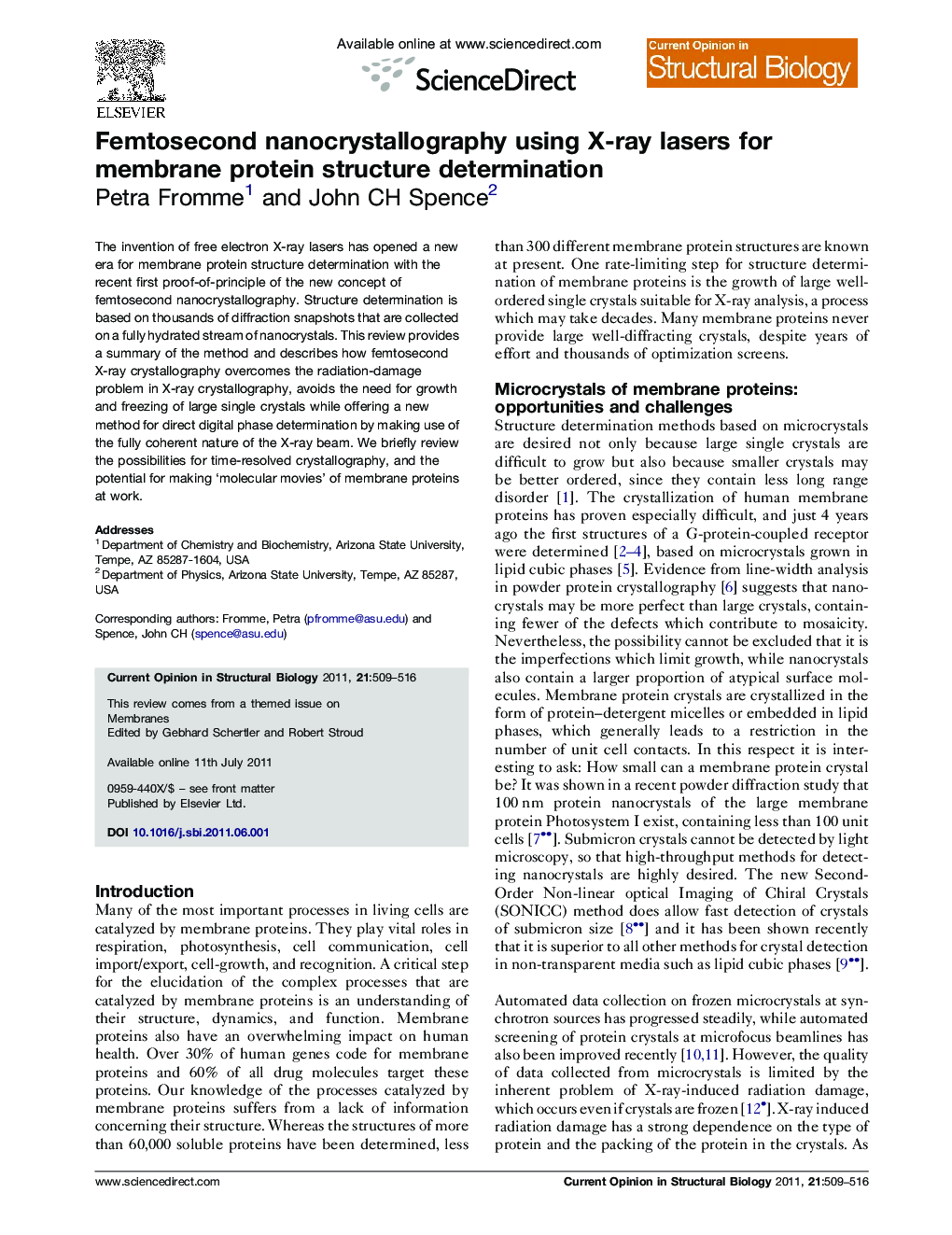| کد مقاله | کد نشریه | سال انتشار | مقاله انگلیسی | نسخه تمام متن |
|---|---|---|---|---|
| 1979333 | 1061675 | 2011 | 8 صفحه PDF | دانلود رایگان |

The invention of free electron X-ray lasers has opened a new era for membrane protein structure determination with the recent first proof-of-principle of the new concept of femtosecond nanocrystallography. Structure determination is based on thousands of diffraction snapshots that are collected on a fully hydrated stream of nanocrystals. This review provides a summary of the method and describes how femtosecond X-ray crystallography overcomes the radiation-damage problem in X-ray crystallography, avoids the need for growth and freezing of large single crystals while offering a new method for direct digital phase determination by making use of the fully coherent nature of the X-ray beam. We briefly review the possibilities for time-resolved crystallography, and the potential for making ‘molecular movies’ of membrane proteins at work.
► Femtosecond nanocrystallography is based on Free Electron X-ray Lasers
► The diffract-before-destroy principle overcomes damage problem in crystallography
► Nanocrystals are delivered at Room temperature in stream by new type of gas-focusing injector
► Coherently illuminated nanocrystals provide interference effects solving the phase problem
► The method opens new avenues for time-resolved studies showing proteins at work.
Journal: Current Opinion in Structural Biology - Volume 21, Issue 4, August 2011, Pages 509–516